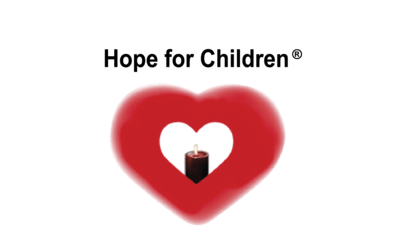SERVING VICTIMS BUILDING TRUST
Posted by Patricia on Jul 17th 2018
Serving Victims. Building Trust. Restoring Hope. Underscores the importance of early intervention and victim services in establishing trust with victims, which in turn begins to restore their hope for healing and recovery.
NCVRW THEME VIDEO: SERVING VICTIMS, BUILDING TRUST, RESTORING HOPE
Public Service Announcement 2016 Video Transcript
MAN: Victims—they are daughters, they are sons, they are sisters.
WOMAN: When you’re working with victims, the goal is to empower them, which means recognizing that you’ve got a lot of choices, and you get to make them.
MAN: We can be a part of getting them into a safe place.
WOMAN: Whatever it is you need, we’ll help you, and when you’re ready to tell us what happened, we’re here to listen.
MARLENE RICHTER, EXECUTIVE DIRECTOR, THE SHADE TREE: The Shade Tree serves people from all different sorts of circumstances. We help victims that decided today is the day to break free.
MELLICIA ROBINSON, YOUTH SERVICES SUPERVISOR, THE SHADE TREE: We have kids that come here from backgrounds with domestic violence. Either the mom has been abused—and, in some cases, the child has been abused—and they’re fleeing from their abuser.
MARLENE RICHTER: And as soon as our survivor walks in the front door, we start saying, “How can we help?”
KENDIS PARIS, EXECUTIVE DIRECTOR, TRUCKERS AGAINST TRAFFICKING: Truckers Against Trafficking are the eyes and ears of the nation’s highways, and we work in and through the trucking industry to combat the sex trafficking that’s taking place along our nation’s roadways.
WILLIAM B. BRADY, DRIVER, TRUCKERS AGAINST TRAFFICKING: Seeing these young girls working the lots over the years that I’ve been driving, I’ve always wondered how to help them. And now we can do something about it.
LOREE COOK-DANIELS, PROGRAM AND POLICY DIRECTOR, FORGE, INC.: It was really, really important to us as FORGE to ask fairly early on: What does it mean to organize in a community that has this much trauma in it? The things that make us not whole can be victimization, it can be prejudice. I mean, there are lots of things. And, yes, we’re focused on transgender survivors of violence, but in our heads, we know we’re talking everybody.
MARLENE RICHTER: Our primary goal was to remove any barriers that would keep a woman and her children from coming in. But when they came in and they left a pet behind, they wouldn’t stay. They would go back because they knew that their animal was going to be abused or was starved, and that’s their best friend.
MELLICIA ROBINSON: It’s just amazing for the families to be able to come and bring their dogs with them, or their cats, or whatever animal they might have, because their animals are a part of their family. And at some point, an animal could be therapeutic for a child.
MARLENE RICHTER: The children do so well. They trust us. They intuitively know, if we’re kind to animals, we’re going to be kind to people. By meeting the survivor where they are, that’s the very first step in building trust.
WILLIAM B. BRADY: In my lifetime, I never thought I’d have an opportunity to help somebody. And I actually have that opportunity now to be able to do that.
MAN: When you do what you do in order to get things…
PAUL J. ENOS, CHIEF EXECUTIVE OFFICER, NEVADA TRUCKING ASSOCIATION: We decided we have a moral imperative because this kind of activity—illegal activity—is happening at truck stops, at places that trucks frequent, so we want to make sure that we are part of the solution.
KENDIS PARIS: We would like to see the guy who used to think they just wanted to be out here… Now he is actively looking. When he sees something, he’s making a call. When law enforcement arrives on the scene, he is the one assisting, giving any more evidence. He is the one who’s testifying in the court against that trafficker. We’re creating a pathway where none existed, really.
LOREE COOK-DANIELS: The overlap of trauma and transness is so heavy. We are examples of survivors that went on to do advocacy work. So we’ve moved out into the polyvictimization area. We know there’s a very good chance that they’re also survivors of child abuse, domestic violence, maybe hate crimes. So a big part of our job when we train service providers is to explain how transgender people are different and how some of our needs are different. But we work really hard to put it in a context of humanity. The end goal is to empower everyone to be who they are and to know there’s hope for healing.
Thank You for Reading this,

